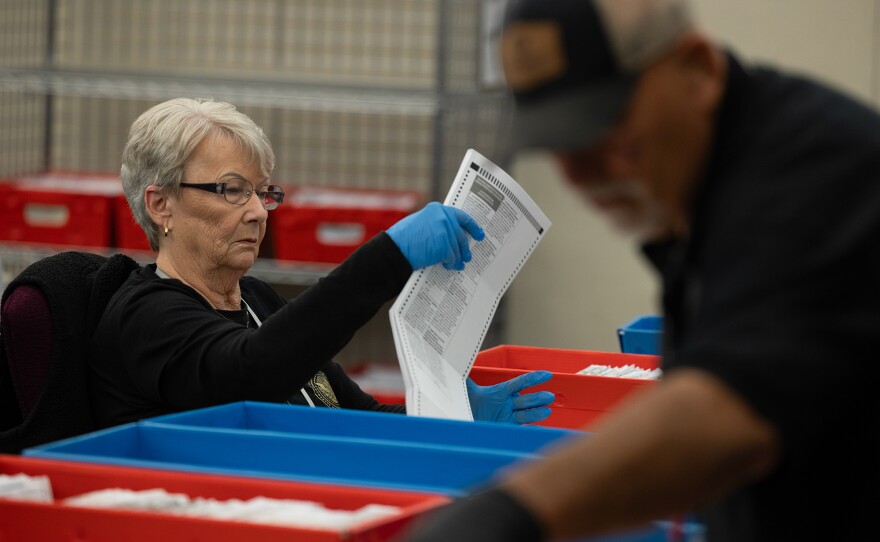Today, a newly-elected class of state lawmakers was sworn into office — before their election results are certified. And in one competitive Assembly district, a leading candidate took office even though her race is still not called.
This is the reality under California’s notoriously slow ballot counting process — a process that one state lawmaker is vowing to change.
Assemblymember Marc Berman, a Palo Alto Democrat who led the Assembly Elections Committee from 2017 to 2021, is introducing legislation to help counties speed up the ballot counting process. He was also the author of the law that made vote-by-mail permanent in California.
“Counties must do everything they can to count votes both quickly and accurately, and we need to make sure they have adequate resources and guidance to do that,” he said in a press release.
As of this morning, election officials statewide still had more than 37,000 ballots to count and more than 96,000 to “cure” — a process to verify voters’ signatures after their ballots had been rejected for missing or mismatched signatures — according to the state Secretary of State’s office.
But the long wait is almost over: Under state law, counties have until Thursday to certify their results.
In the 58th Assembly District, Republican Leticia Castillo was sworn in, though the Associated Press hasn’t declared her the winner over Democrat Clarissa Cervantes.
The lengthy process has created whiplash for some candidates and given rise to conspiracy theories about election fraud. GOP Assemblymember Joe Patterson slammed the process as “dumb” for swearing in winners before election results are final.
In 2022, Christy Holstege, a civil rights attorney who ran for state Assembly, attended the Assembly’s orientation for newly elected members while ballots were being tallied. The vote count later revealed that she had actually lost to her GOP opponent, Assemblymember Greg Wallis of Rancho Mirage.
And this year, conservatives have spread unfounded claims that the state’s 45th Congressional District was “stolen” when Democrat Derek Tran took the lead over GOP Rep. Michelle Steel after trailing her for days.
The slow process is partly due to the nature of California’s sizable voting population — 22 million registered voters — and the widespread use of vote-by-mail, experts have said. Independent redistricting efforts and the state’s top-two primaries have also produced more competitive districts, making it harder to call races with just a portion of the ballots.
But county clerks could benefit from more resources, including high-speed tabulators and funding for more staff, and policy changes that would allow voters who would rather vote in person to opt out of voting by mail, said Kim Alexander, president of the nonpartisan California Voter Foundation.






